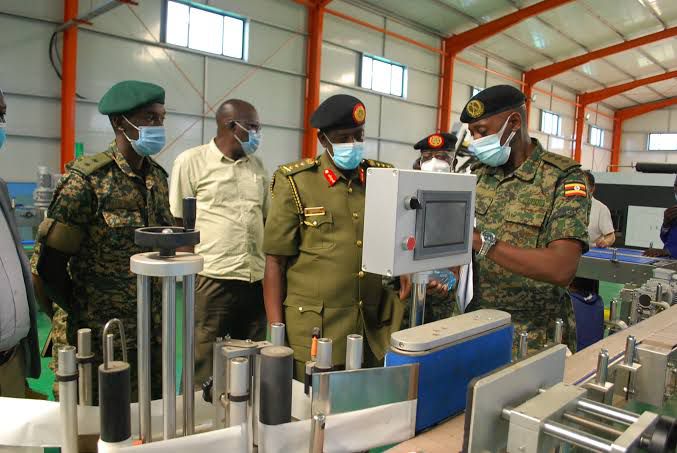Global Symposium for Regulators: Reflections on embracing digital transformation and innovation

By Ismail Obadia
This year's symposium focuses on the theme of "Regulation for Impact," highlighting the crucial role of regulatory frameworks in driving positive change and fostering innovation in the digital era.
The event brought together leaders in regulatory bodies from around the world to discuss the transformative impact of Information and Communication Technologies (ICT) and set the course for digital regulation and governance in the years ahead.
Uganda, a member of the International Telecommunication Union (ITU) since 1963, stands at a crucial juncture to harness the opportunities presented by rapid technological advancements. The discussions at the symposium highlighted the importance of running faster to catch up with the rest of the world in terms of digital innovation and regulatory frameworks.
The thematic sessions at GSR-24 serve(d) as a dynamic forum for knowledge exchange and collaboration, providing a global platform for stakeholders to engage in discussions surrounding the transformative power of regulation.
By convening regulators and policymakers alongside industry leaders, the symposium enable(d) dialogue on best practices, emerging trends, and opportunities to enhance regulatory impact in a rapidly evolving digital landscape.
Participants at GSR-24 explore(d) a diverse range of topics, from regional regulatory associations and digital networks to space economy, cybersecurity, AI, and the role of ICTs in socioeconomic transformation.
The symposium underscores the importance of regulatory agility, inclusivity, and collaboration in shaping effective policies that drive digital innovation and address global challenges.
The event also showcase(d) Uganda's commitment to digital transformation and its role as a host country dedicated to advancing regulatory excellence and digital inclusion.
Driven by the vision of leveraging technology for societal progress, Uganda's participation in GSR-24 reflects a broader effort to harness ICTs for sustainable development and economic growth.
Thematic sessions such as regional regulatory associations, digital regulation networks, and high-level segments on maximising digital opportunities underscored the need for collaboration, connectivity, and agile regulation to drive innovation and ensure inclusive development.
The symposium also delved into critical issues such as cybersecurity, AI, robotics, and the space economy, emphasising the importance of addressing challenges and seizing the potential offered by emerging technologies.
Key insights from the event included the recognition and reality that "access to the internet is no longer a luxury but a fundamental right," and the imperative to engage all stakeholders to achieve the Sustainable Development Goals (SDGs).
Uganda's commitment to a digital transformation roadmap focusing on infrastructure, skilling, literacy, and cybersecurity exemplifies the government's dedication to embracing technology for socioeconomic progress.
Prominent figures at the symposium, including the Chief Guest Vice President Jessica Alupo, who while delivering the speech from President Museveni, said ICT is at the centre of the social-economic transformation agenda.
This is because digital technology has the potential to accelerate development through innovation, job creation and increased productivity.
Further that, unlike traditional warfare where you can secure the country by guarding your own borders against intrusion, cyber warfare calls for collaborative efforts especially when emanating from outside the country's jurisdiction.
Dr Chris Baryomunsi, the minister of ICT and national guidance, and ITU officials such as the ITU Secretary General Doreen Bogdan-Martin, and Dr Cosmas Zavazava, the director telecommunications development bureau, ITU.
They highlighted the transformative power of ICTs and the need for proactive regulatory frameworks to foster innovation and competitiveness. The symposium also emphasised the significance of AI, space technology, and collaborative efforts in addressing global challenges such as cybercrime and digital inclusion.
As GSR-24 unfolds, it serves as a catalyst for transformative change, inspiring regulators and stakeholders to rethink regulatory paradigms and embrace innovative solutions that drive positive impact. By fostering collaboration, knowledge sharing, and strategic partnerships, the symposium sets the stage for regulatory excellence and digital empowerment on a global scale.
As the GSR continues to bring together global regulators and industry leaders to navigate the evolving digital landscape, Uganda and other nations are urged to prioritise digital innovation, regulatory agility, and strategic partnerships to leverage the full potential of technology for sustainable development.
In conclusion, the Global Symposium for Regulators serves as a platform for shared learning, best practices, and collective action towards a digital future that maximises opportunities and addresses the evolving needs of societies worldwide. Uganda's hosting of the symposium reflects its commitment to advancing ICTs and bridging the digital divide, setting a precedent for inclusive growth and innovation on the global stage.
_________________________________________
Mr Ismail Obadia is the legal counsel of the National Association of Broadcasters
Chief of Legal and Regulatory Compliance/C.S-Next Media














